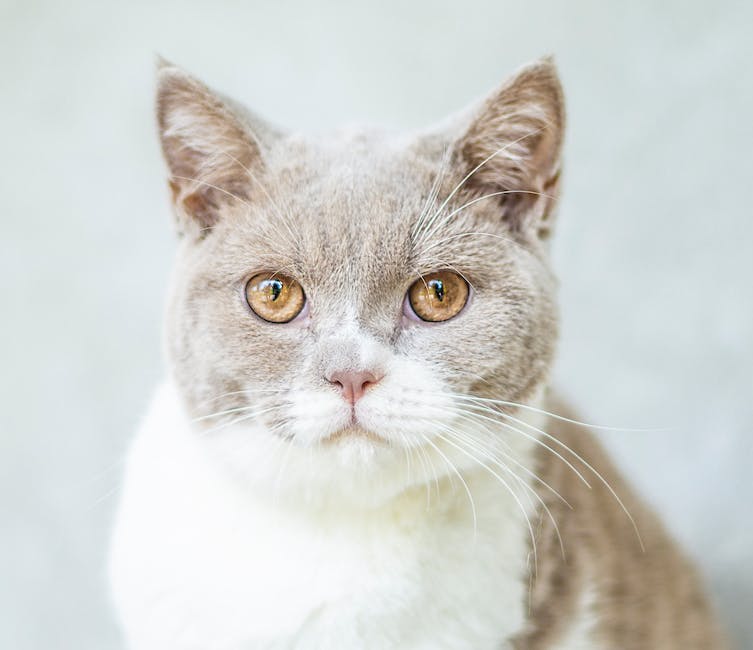Feline allergies are a common problem for a lot of cat lovers. These allergies are caused by a person’s immune system having an exaggerated response to certain proteins found in a cat’s saliva, urine, and dander. Symptoms associated with feline allergies include sneezing, itchy and watery eyes, runny nose, and skin rashes.
The Low-Allergen Benefits of Siamese Cats
If you suffer from cat allergies, you might have heard that certain cat breeds are less allergenic than others. One of these breeds is the Siamese cat. Siamese cats produce less of the allergen protein Fel d1 compared to other breeds. In fact, they are considered to be one of the lowest allergenic cat breeds available.
Siamese cats have a short, fine coat that requires minimal grooming. Their hair sheds minimally compared to other breeds which means less dander in the house. Dander is a major allergen that can cause allergic reactions in some people.
Choosing the Right Siamese Cat for Allergy Sufferers
It’s important to note that while Siamese cats are low-allergenic, they still produce some allergen proteins. If you are seriously allergic to cats, it’s best to avoid them altogether. However, if your allergies are mild to moderate, a Siamese cat may be a good option.
When selecting a Siamese cat, it’s important to make sure you are not allergic to the cat’s particular Fel d1 protein. Spend time with the cat before bringing it home to ensure you don’t have an allergic reaction. Consider choosing a Siamese kitten as they produce less allergen than adult cats. Male Siamese cats tend to produce less allergen than females, so this may be another factor to consider when making your choice.
Creating an Allergy-Friendly Environment for Your Cat
Creating an allergy-friendly environment for your Siamese cat not only helps to reduce allergic reactions but also keeps your feline friend comfortable and healthy. Here are some tips:
- Use a high-quality air filter in your home to trap any pet allergens in the air.
- Keep your cat’s litter box clean and in a well-ventilated area.
- Use a HEPA vacuum cleaner regularly to suck up any loose pet hair and dander on your floors and carpets.
- Use allergy-friendly cleaning products that are free of harsh chemicals.
Grooming Tips to Minimize Dander and Shedding
Grooming your Siamese cat regularly helps to reduce the amount of dander and shedding hair in your house. Here are some tips:
- Brush your cat’s coat daily to remove loose hair and dead skin cells, which reduces the amount of pet dander in your home.
- Give your cat regular baths to wash away any surface allergens that may be present.
- Keep your cat’s claws trimmed to prevent scratching that can lead to skin irritation and more dander production.
- Keep your cat’s bedding clean to prevent allergen buildup.
Dietary Adjustments for Reducing Allergies in Cats
Feeding your Siamese cat a well-balanced, high-quality diet can help to reduce allergic reactions. Here are some tips:
- Choose a cat food that contains anti-inflammatory ingredients like omega-3 fatty acids to help manage allergies and skin conditions.
- Avoid cat foods that contain grains and fillers that may trigger allergies in some cats.
- Consider adding probiotics to your cat’s diet to support digestive and immune health.
- Provide your cat with fresh, clean water at all times to encourage hydration and overall health.
Cleaning Strategies to Keep Allergens at Bay
Cleaning your home regularly is key to keeping allergens at bay and reducing allergic reactions. Here are some cleaning strategies to consider:
- Use a high-quality air purifier with a HEPA filter to capture pet allergens in the air.
- Wash all bedding, including your cat’s bedding, regularly using hot water to remove any allergens.
- Use a damp cloth to wipe down surfaces regularly to trap pet dander and allergens.
- Vacuum carpets, furniture, and curtains regularly using a vacuum with a HEPA filter.
- Consider steam-cleaning your carpets and furniture to kill any allergens that may be hiding within them.
Other Remedies for Managing Allergies Associated with Cats
Aside from these strategies, there are other remedies you can try to manage your allergies associated with cats. Here are some to consider:
- Try using a saline nasal rinse to flush out allergens from your nasal passages.
- Use antihistamines or decongestants to alleviate symptoms like sneezing and runny nose.
- Consult with an allergist who can recommend immunotherapy or allergy shots to help reduce your cat allergies over time.
- Consider trying out a product like an air purifier that uses ultraviolet light to neutralize pet allergens in the air.
Remember that it’s important to discuss any allergy remedies with your doctor or allergist before trying them out. With these strategies and remedies, you can still enjoy the company of your Siamese cat and keep allergic reactions to a minimum.

